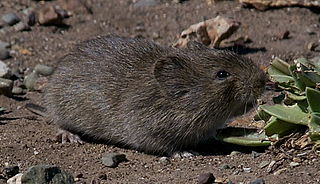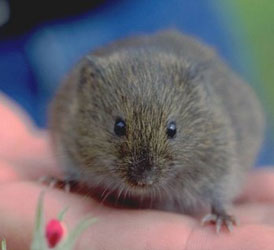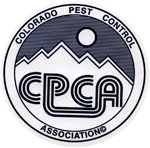Rodent Control

Front Range Pest Control of Fort Collins has trained professional experts in Vole, Mouse and Rat Control.
Rodent Control is the solution to some of the most destructive, dirty, and dangerous pests to have in or around your home. Since they are rodents, they must constantly chew or gnaw on hard materials to keep their teeth worn down. This can include almost any part of your home, including wood, metal or plastic pipes, siding, air conditioning ductwork, wiring, even concrete! Not only is it destructive, their affinity for wiring insulation can cause a fire hazard. They can breed up to 6 times in a year, producing 5-10 babies each time. Once they take up residence in your home, they can quickly multiply, increasing the damage and danger to you and your property. Our pest control experts are professionally trained in rodent control.
Rats and Mice
Rats have very poor eyesight, and they adapt to this shortcoming by urinating and defecating almost constantly. They follow these trails of urine and droppings (also call pellets) to find their way around their environment, and in and out of your home or business. These droppings can create odor problems, as well as diseases, including salmonella, hantavirus, tularemia, and many others. Homes with a rat infestation will often require rat control and rat removal with extensive repair and cleanup (disinfecting) in order to make them safe to live in.
There are two types of rats that typically cause rat control problems in the United States. They are the Norway rat, which is also called the sewer rat or wharf rat. His cousin the Roof rat, also known as the black rat, is just as destructive, but tends to be a better climber than the Norway rat, as a result it is more often found in the attics of homes and businesses than the Norway rat. Although they are different species, they inflict the same types of damage and cause the same dangers to you, your family, and your property.
Rat Control and extermination of rats involves a series of steps in many situations. The first step is rat removal, which usually means trapping all of the rats living in the structure. Rodenticides or poisons are usually not the best way for rat removal of the infestation initially because they often cause you to have dead and decomposing animals in the structure of your home, which can lead to further contamination, terrible odors, and insect problems. A thorough inspection to identify entry points on your home will often reveal a need for exclusion to prevent reentry once the initial rat removal is completed. Because rats can squeeze through very small openings, it is often impossible to fully "rat proof" a structure. In many cases, we can implement a rat control program to prevent a re infestation which will include rat control re treatment if needed.
Don't think just because mice are small that they are any less destructive to your home and property. They can enter through even smaller openings, and they reproduce just as quickly. As a matter of fact, they are actually more prevalent than rats are across the country. There is literally nowhere that they are not found, and they have even been known to make their way into homes in the packing of furniture and appliances straight from the warehouse! Without professional mice control treatment, there is no way to be fully protected from these little pests. They carry the same dangers and diseases that their larger cousins do, and can be even harder to detect and remove due to their small size and smaller range.
For more information about diseases mice can carry please visit, House Mouse Diseases Information Page.
Voles

A Vole is a small rodent resembling a mouse but with a stouter body, a shorter hairy tail, a slightly rounder head, smaller ears and eyes, and differently formed molars (high-crowned and with angular cusps instead of low-crowned and with rounded cusps). There are approximately 155 species of voles. They are sometimes known as meadow mice or field mice in North America. Vole species form the subfamily Arvicolinae with the lemmings and the muskrats.
Vole Description: Voles are small rodents that grow to 4-8 inches depending on species. They can have 5-10 litters per year. Gestation takes for 3 weeks and the young voles reach sexual maturity in a month. Needless to say, vole populations can rapidly grow from one or two to many within a very short period of time. Since litters average 5-10 young, a single vole in the yard can become 50 or more in less than a year.
Voles are commonly mistaken for other small animals. Moles, gophers, mice, rats and even shrews have similar characteristics and behavioral tendencies. Since voles will commonly use burrows with many exit holes, they can be mistaken for gophers or some kind of ground squirrel. Voles can create and will often times utilize old abandoned mole tunnels thus confusing the land owner into thinking that moles are active. When voles find their way into the home, they are readily identified as mice or young rats. In fact, voles are unique and best described as being a little bit like all the other animals they are so commonly thought to be.
Like moles, they will readily thrive on small plants. Like shrews they will eat dead animals and like mice or rats, they can live on most any nut or fruit. Additionally, voles will target plants more than most other small animals. It is here where their presence is mostly evident. Voles will readily "girdle" or eat the bark of small trees and ground cover much like a porcupine. This girdling can easily kill young plants and is not healthy for trees or other shrubs.
Voles love to eat succulent root systems and will burrow under plants or ground cover they are particularly fond of and eat away until the plant is dead. Bulbs in the ground are another favorite target for voles; their excellent burrowing and tunneling gives them access to sensitive areas without clear or early warning. A vole problem is often only identifiable after they have destroyed a number of plants.
If you know or suspect your home may be in need of vole, rat or mice control or removal, don't wait! Call Front Range Pest Control of Fort Collins , we have Rodent Removal Specialists who are fully licensed and insured. We are experts at rodent control, removal and prevention of rodents in both residential and commercial areas.


